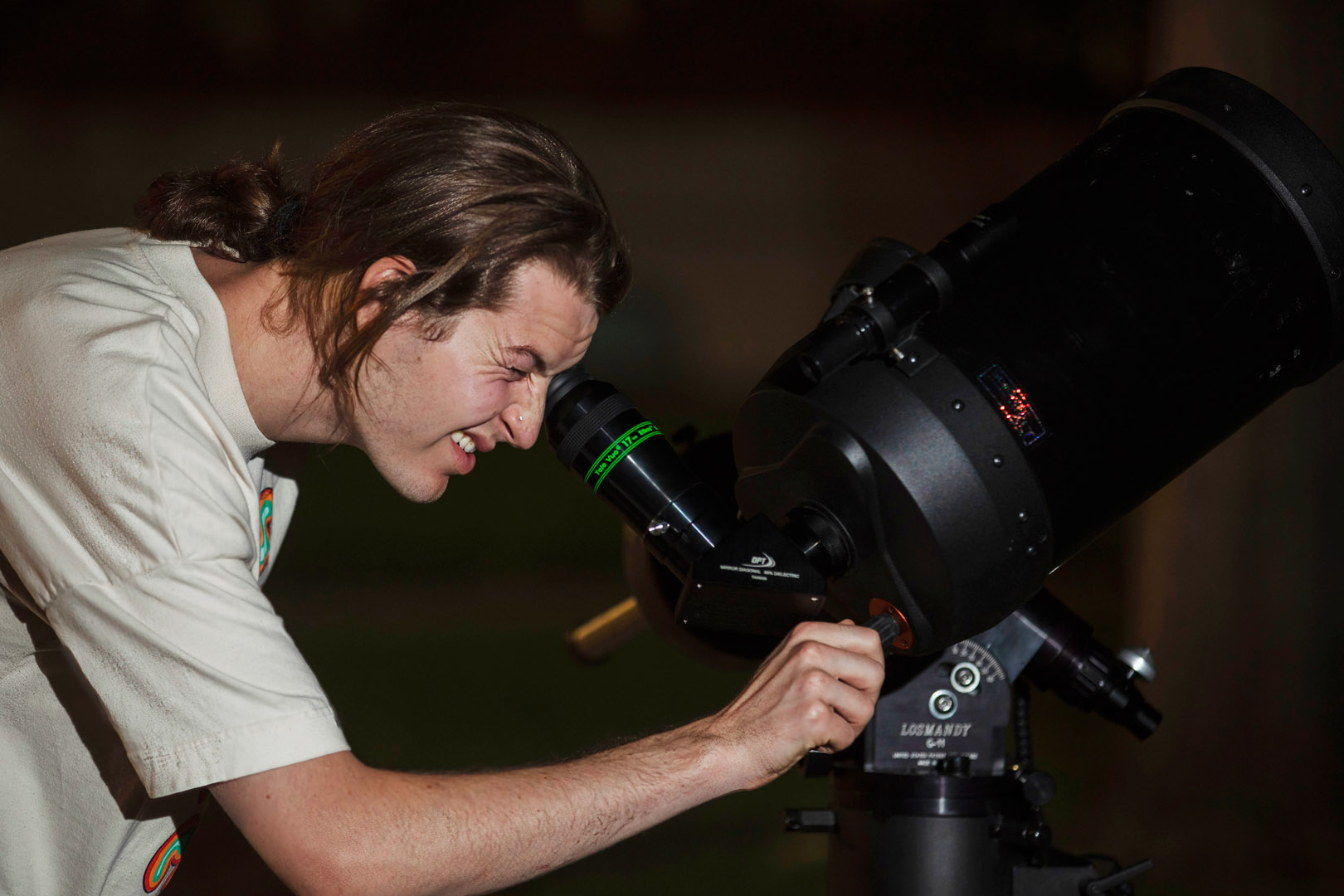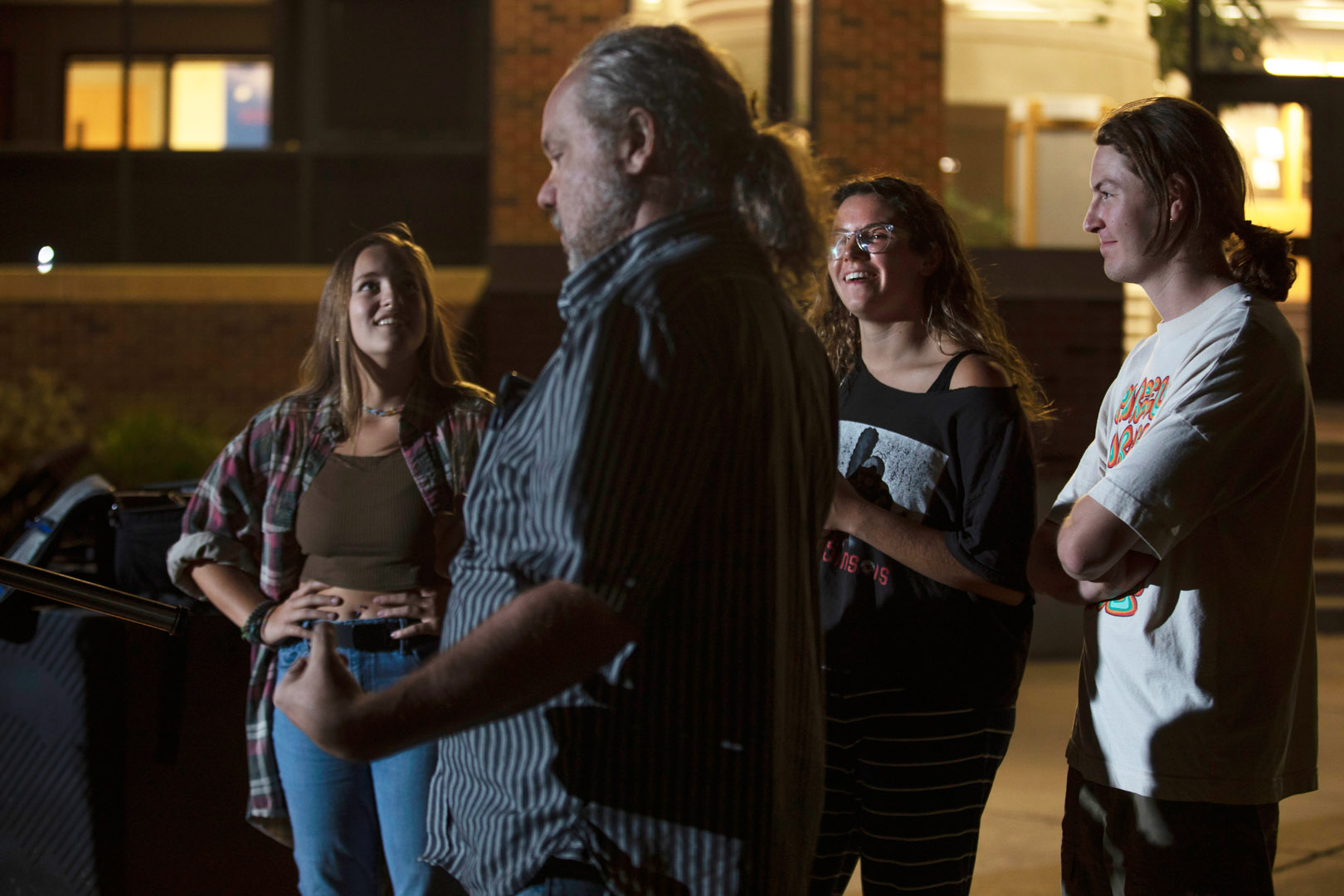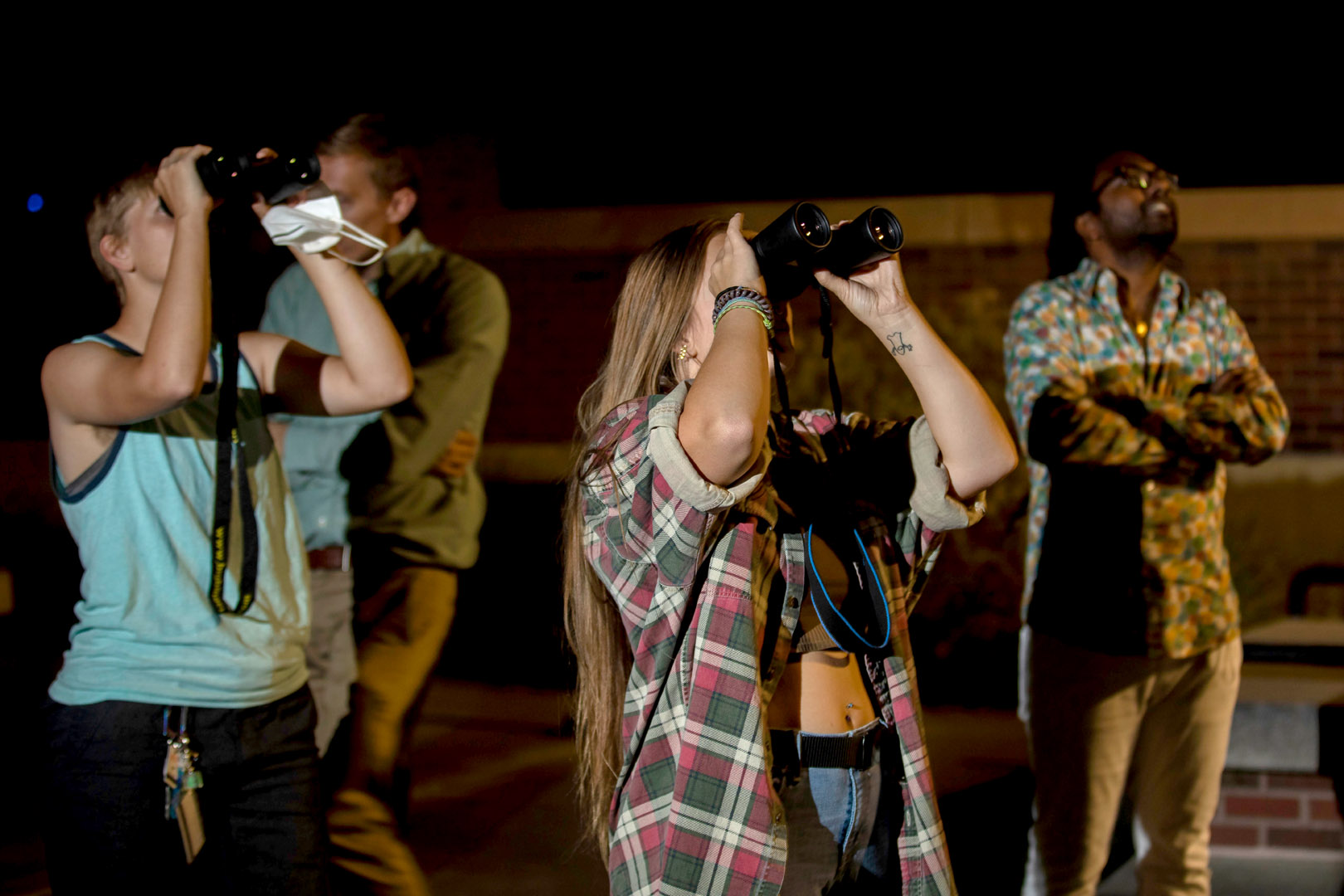An astronomy class, which aims to teach students about the universe, has done so much more. From enhancing students’ critical thinking skills, to asking them philosophical questions, this class did not disappoint.
PC133 Astronomy was co-taught by Professors Austin Hinkel and Dhanesh Krishnarao, of the Physics Department. Hinkel oversaw the class lectures and Krishnarao directed the lab portion.
Hinkel says he hopes that students take away two main concepts from this course.
“First, astronomy offers students a chance to exercise their critical thinking skills and build scientific literacy in a fun, collaborative environment. For example, students will work together to understand the immensity of the cosmos and how stars ‘manufactured’ the elements that make up you and me,” says Hinkel. “Critical thinking skills and scientific literacy are critical in any democracy, and what better way to strengthen those muscles than learning about the mysteries of the universe?”
Secondly, astronomy offers an incredibly unique perspective of life here on Earth, says Hinkel. “In PC133, we learn about planets with a runaway greenhouse effect, crushing gravity, or sulfuric acid in their clouds -- completely inhospitable to life as we know it -- and develop an appreciation for our home planet and the life we share it with.”
“We are so, so tiny but everything we do is so, so important because this is the only world we have,” says Leo Fries ’24, a student in the class.
Fries’ favorite part of the course has been learning about exoplanets, which are planets around other stars, and how astronomers find them.
“This class also makes you contend with the incomprehensible size of the universe. I think everyone intuitively knows that space is impossibly huge, but the scale of it is really mind-boggling once you spend a few weeks thinking about it,” says Fries, a math major. “We did a scale model problem in class the other day where we let the Oort cloud—a huge collection of icy objects that essentially mark the outer edge of the solar system, if you measure it based on the Sun’s gravity—be scaled to the size of all of CC campus, with the sun at the center. With this model, the size of the orbit of the Earth, which is 93 million miles from the sun, is less than a quarter inch.”
Caeleigh O’Connor ’23, a student in the class, thinks the course would have been a lot more challenging if it wasn’t on the Block Plan. “Right now, I have the time to think only about astronomy and focus on the math skills needed for this course as opposed to balancing it with my language classes,” says O’Connor, who double majors in theatre and classics.
Astronomy on the Block Plan offers flexibility in scheduling so that classes can meet at night to observe the stars and planets from outside the city lights, without conflicting with other classes, says Hinkel.
O’Connor’s favorite part of the course has been the labs that involve looking at the night sky; she also noted the importance of paying detailed attention during the lecture portion. “The more you pay attention during the lectures, the more fun you will have because this class gives you an excellent scope for how huge and awe-inspiring our universe actually is.”
Krishnarao says he hopes that his students don’t just memorize cool space facts, but instead learn to and practice thinking critically and rationally about problems, whether about astronomy, physics, or anything else occurring in their lives.
“The ‘scientific method’ is a powerful tool and can be used to solve so much more than science problems in a classroom,” says Krishnarao.
After pre-registration, the class had a waitlist of 30 people, which is very typical, says Kate Carlton, the physics academic administrative assistant. The class is always full.
The class planned to travel to the CC cabin for stargazing and lunar mapping towards the end of the block, though canceled that trip after a member of the class tested positive for COVID-19. Instead, students observed the night sky from campus.








